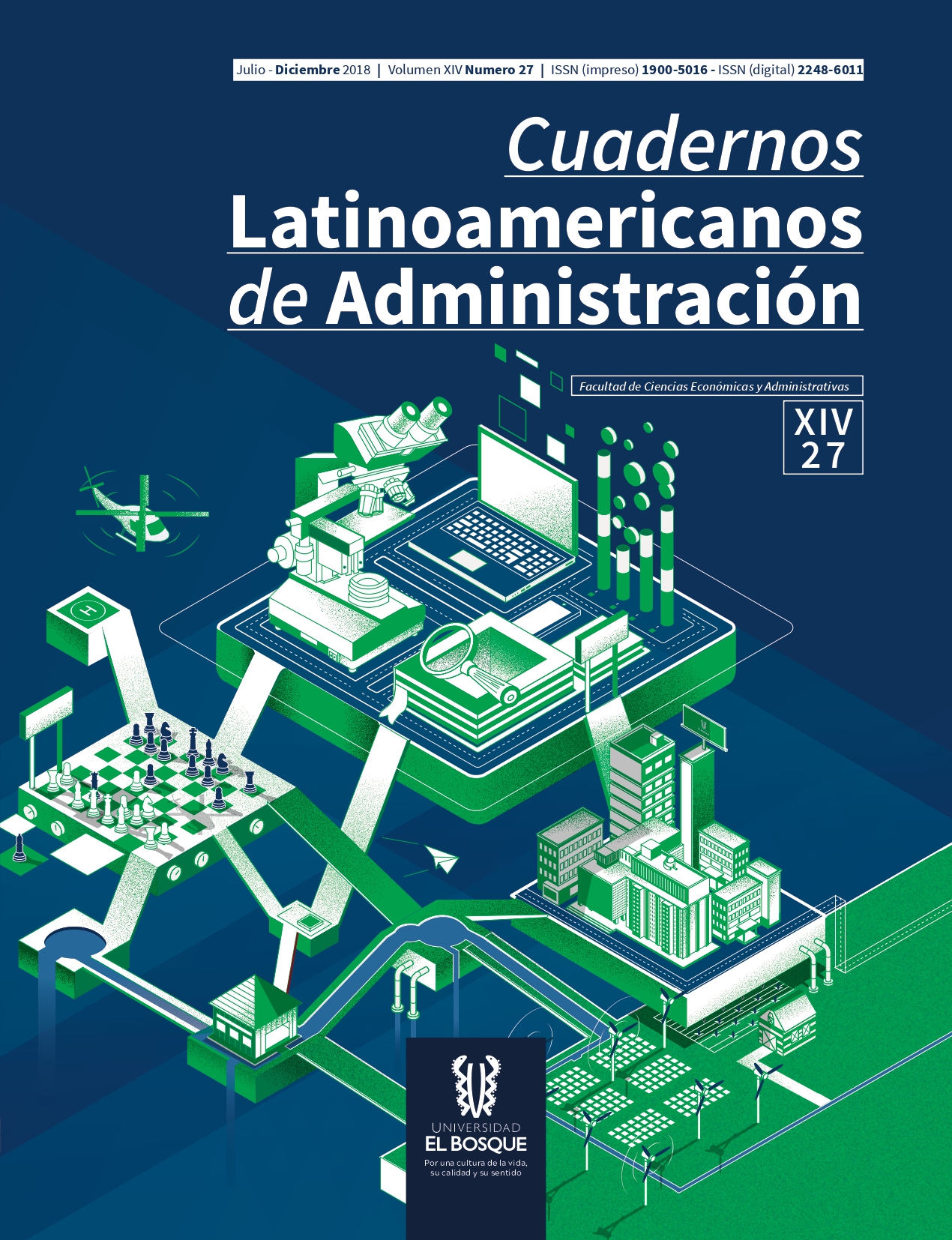Towards and inclusive knowledge management
DOI:
https://doi.org/10.18270/cuaderlam.v14i27.2666Abstract
In this editorial, a topic of great importance related to Knowledge Management (GC) is presented, as a facilitating process in the transmission of intellectual capital and experiences, produced by people and organizations, in order to learn and generate new knowledge . In this regard, the concept of Knowledge Management, appears at the end of the twentieth century, with the development of management models, which involved themes on total quality management, continuous innovation, organization, among others, appearing, in addition, the culture criticism that knowledge should spread, where possible with open access. However, with the current model of economic globalization and with the accelerated development of new information and communication technologies (ICT), the exchange of information and knowledge has been facilitated, knowledge management (GC) becoming especially relevant. ), as a new management model; where, the individual, the companies and the organizations, must adjust to the new situations of change to generate competitive advantages, expressed in better results of productivity, creativity, innovation, social responsibility, among others. (Gómez, Pérez & Curbelo, 2005).
However, according to Nonaka & Takeuchi (1999), the GC is defined as: “It is an emerging discipline that aims to generate, share and use the tacit (know-how) and explicit (formal) knowledge existing in a given space , to respond to the needs of individuals and communities in their development. ” In this regard, the individual knowledge expressed as tacit, which is part of the individual intellectual capital, or ability to KNOW-DO the individual, as the ability to learn and apply or generate new knowledge is revealed. At the same time, explicit knowledge refers to the knowledge of companies or organizations, which converts it into operational returns in the production of quality goods or services for the achievement of economic benefits, with a responsible impact at the social and environmental level, when Society service. From this point of view, one could understand that, scarce resources for companies or organizations are knowledge and experience, not capital resources.
In this regard, it is noted that universities are shown as organizational entities, but it is worth mentioning, that historically these institutions have been the generators of scientific and technological knowledge, responding to the different problems of society, and showing a very important knowledge management, in the global village.
Reflection is then made so that governments, institutions of higher education, organizations and companies, among others, producers and / or managers of knowledge, review their policies related to knowledge management and free access, as the Knowledge management (Argote, McEvily et Rodríguez, 2003), with its mechanisms of skills, motivation and opportunity (where everyone has the opportunity to learn from each other), represents an effective instrument for the distribution of knowledge in society, supported by the use of technology with ICT and Human Talent Management, among others. Thus, knowledge management is expected to contribute more and more to the appropriation and accessibility of knowledge for all.
Downloads
References
Gómez, D., Pérez de Armas, M., & Curbelo, I. (2005). Gestión del conocimiento y su importancia en las organizaciones. En Ingeniería Industrial, vol. XXVI, n° 2, 2005, p. 37-46.
Nonaka, I. & Takeuchi, H. (1999). La organización creadora del conocimiento. México D. F: Editorial Oxford Press.
Downloads
Published
How to Cite
Issue
Section
License
Copyright (c) 2019 Universidad El Bosque

This work is licensed under a Creative Commons Attribution-NonCommercial-ShareAlike 4.0 International License.
The authors when they send their articles for evaluation certify originality and transfer the proprietary rights to the Journal
Latin American notebooks Administration, University El Bosque, for dissemination in print and / or electronic. But scientific evidence, originality, content of the documents are the exclusive and sole responsibility of the authors.
















